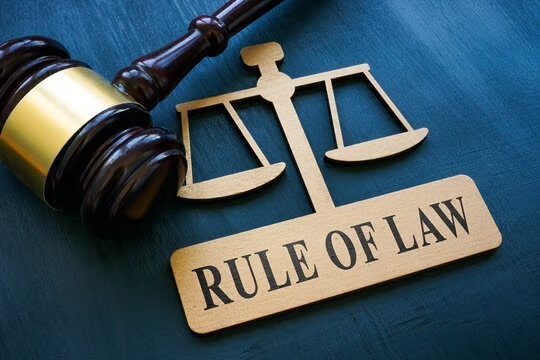Allodial Ownership: The Ultimate Untouchable Asset
When we talk about ownership, most of us assume that buying a home, land, or any valuable item means it’s unequivocally ours. However, in most modern systems, property ownership often comes with conditions—like taxes, liens, or other legal obligations that can challenge your claim to it. Enter the concept of allodial ownership: a rare, ancient, and highly coveted form of property ownership that ensures your property remains truly untouchable.
Let’s explore what allodial ownership is, its history, how it works, and how you might apply it to protect your assets.
What is Allodial Ownership?
The term “allodial” comes from the medieval Latin word allodium, which means “freehold property.” In essence, allodial ownership refers to absolute and unrestricted ownership of property. When you hold something in allodial title, no government, creditor, or third party can impose taxes, liens, or other claims on it. You own it outright, free and clear, in the truest sense of the word.
Most property ownership today operates under fee simple title, which gives you substantial rights but still requires you to pay property taxes and abide by certain government regulations. With an allodial title, however, those obligations vanish. It’s the ultimate form of ownership, granting total control and immunity from external interference.
How Allodial Ownership Works
Key Features of Allodial Ownership:
1. No Property Taxes: Owners of allodial property are not required to pay property taxes.
2. Freedom from Liens: Creditors cannot place a lien or encumbrance on allodial property.
3. No Eminent Domain: Governments typically cannot seize allodial property under eminent domain laws without explicit consent.
4. Unrestricted Use: The owner has full control over the property, within basic legal limits like criminal law.
How It Differs from Conventional Ownership:
• In fee simple title, you own the property but remain subject to taxes, zoning laws, and the potential for government seizure.
• In allodial ownership, your property is entirely independent of these restrictions. You become the sovereign owner, akin to a state or nation owning land.
The History of Allodial Ownership
Allodial ownership dates back to feudal Europe. Under the feudal system, most land was owned by kings or lords, and tenants held the land in exchange for service or rent. However, some freeholders were granted land as allodium, meaning it was free from any overlord’s claim.
In the United States, the concept of allodial land ownership has appeared sporadically. Some states, such as Nevada and Texas, have offered mechanisms for converting property into allodial ownership, although these cases are rare and come with specific conditions.
Advantages of Allodial Ownership
1. True Freedom: No taxes, no liens, no interference. This is the most robust form of ownership available.
2. Financial Security: Creditors and governments cannot claim or seize your property, offering unparalleled peace of mind.
3. Legacy Planning: Allodial property can be passed down without many of the restrictions or tax burdens associated with conventional ownership.
Challenges of Achieving Allodial Ownership
While allodial ownership sounds ideal, it’s not easy to achieve. Some of the challenges include:
1. Scarcity: Very few jurisdictions allow for allodial titles in modern times. Most land is governed under fee simple laws.
2. Cost: Converting property to allodial title, where possible, often requires significant payments to satisfy future tax obligations in advance or buy out other claims.
3. Legal Restrictions: Even in places where allodial ownership exists, there may still be underlying limitations, such as environmental regulations or public safety laws.
How to Acquire Allodial Ownership
If you’re interested in pursuing allodial ownership, here’s what you need to know:
1. Research Local Laws: Some states, like Nevada, offer allodial title programs. Check if your jurisdiction provides a legal pathway to convert your property.
2. Pay Off All Liabilities: To claim allodial ownership, you must eliminate all liens, mortgages, or debts tied to the property.
3. Apply for Allodial Status: In areas where it’s permitted, you’ll need to formally apply and, in some cases, make a large lump-sum payment to cover future taxes.
4. Consult Legal Experts: Because allodial ownership is rare and legally complex, working with a real estate attorney experienced in this field is crucial.
Modern Applications of Allodial Ownership
Real Estate
Allodial titles are most commonly associated with land and homes. For example, in Nevada, homeowners with no mortgage can apply to convert their property into allodial status. This often involves a significant upfront payment to cover anticipated property taxes indefinitely, after which the property is tax-free and immune from liens.
Other Assets
The concept of allodial ownership can extend to other valuable assets, such as vehicles, art, or even intellectual property. In such cases, securing allodial status involves ensuring the asset is free from encumbrances and claims.
Is Allodial Ownership Right for You?
Allodial ownership represents the pinnacle of security and independence, but it’s not for everyone. Here’s a quick guide to determine if it’s worth pursuing:
• You Want Absolute Freedom: If you value the idea of owning property that no one can touch or tax, allodial ownership is ideal.
• You Can Afford the Upfront Costs: Achieving allodial status often requires a significant financial investment.
• You Live in a Jurisdiction That Allows It: Not all places offer mechanisms for converting property to allodial status.
The Untouchable Future
Allodial ownership is a fascinating and empowering concept that offers unparalleled autonomy and protection. Although it’s rare in modern systems, the allure of truly untouchable ownership continues to inspire those who value freedom and independence. Whether you’re looking to protect your home, land, or other assets, understanding and pursuing allodial ownership could be the ultimate safeguard against external claims.
If you’re ready to explore the possibility of owning something that truly belongs to you—and only you—dive deeper into your local laws and consult experts to make this rare opportunity a reality.



